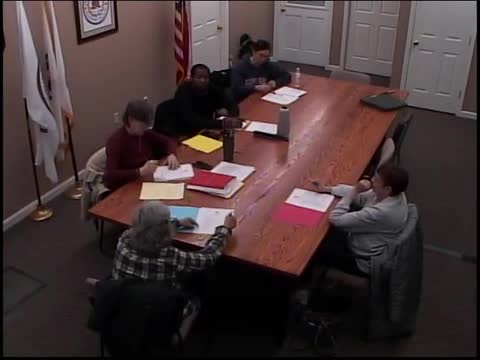Board questions ongoing landfill testing after 30 years, seeks DEP meeting and budget path
Get AI-powered insights, summaries, and transcripts
Subscribe
Summary
Board members revisited the closed landfill monitoring schedule, noted repeated negative results and the $5,865 estimated testing cost for the coming fiscal year, and agreed to seek a MassDEP representative and to request a timing and funding change so sampling occurs in FY2026 rather than FY2025.
The Board of Health discussed the town’s post-closure monitoring of a landfill closed roughly 30 years ago and pressed state oversight (MassDEP) for a clearer end to the testing schedule.
Mark Popham (contract lead on the landfill monitoring update, referenced in the packet) requested two shallow probe locations be re-dug in spring sampling; the board noted the sampling cannot be invoiced until after the town’s fiscal-year funds are available on July 1, 2025. The contract estimate in the board packet listed an anticipated fee of $5,865 for the testing, and the board directed that the invoice and sampling be shifted to fiscal year 2026 language so payment would not be attempted from FY2025 funds.
Board members questioned why post-closure monitoring remains open-ended three decades after closure when test results historically have shown no significant contamination. Members asked staff to request a MassDEP representative attend a future meeting to explain the agency’s rationale and any regulatory thresholds for reducing monitoring frequency or approving a cessation of routine testing.
Members discussed practical matters tied to monitoring costs: whether mowing and basic site maintenance (currently funded or performed by the town) should be budgeted in the same account used for testing and whether the testing schedule could be reduced from annual to a less frequent cadence if supported by MassDEP. They also asked for a map showing the precise locations of the monitoring wells and for confirmation of which well (or probe) requires maintenance or re-digging before the next sampling round.
The board voted to postpone any sampling that would be invoiced before July 1 and to request MassDEP engagement. Staff was asked to prepare a letter citing the applicable solid-waste regulation (referenced as 310 CMR) and to seek clarification on the statutory or regulatory path to reduce or end monitoring after an appropriate post-closure period.
Board members also discussed the potential to use an intern to research regulatory precedence and identify other municipalities that obtained monitoring waivers after 30 years; the board authorized staff to pursue those research avenues and to include the monitoring request as a potential warrant article for town meeting funding if needed.
